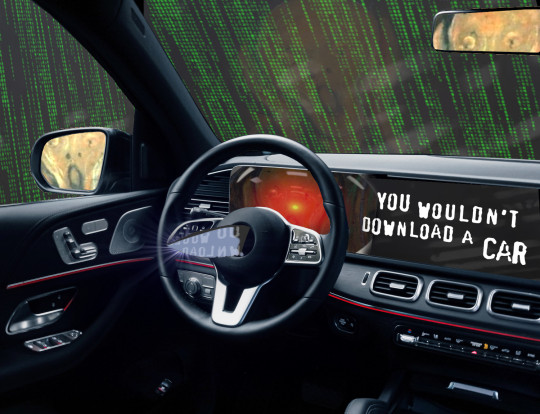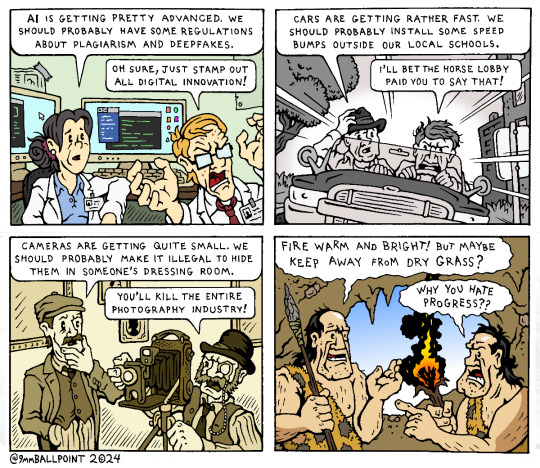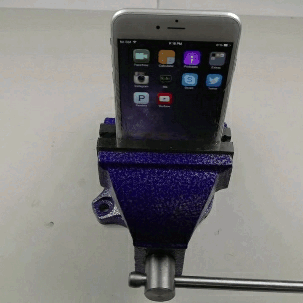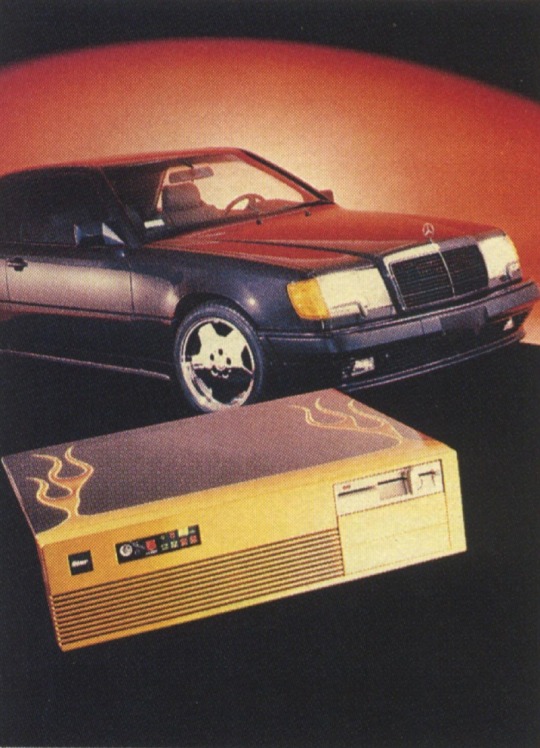#not in computers but in cars
Text
Rationing Insulin.

Blood sugar reading this morning. The average blood sugar reading should be between 60mg/dl - 100mg/dl. I am terrified of not being able to administer my insulin simply because I was too poor to afford it. I am strongly in need of community help.
CA: $HushEmu
I am happy to announce I raised $33 🎉 I only need $417 to get my prescription


#antiques#archaeology#artificial intelligence#biology#code#chemistry#college#computer science#classic car#conservation#entomology#environment#equestrian#etsy#ferrari#fishing#charity#geography#halloween#anthropology
1K notes
·
View notes
Text

i had a vision
#car and hosuehold appliace objectum erasure sorry#objectum#objectophilia#plushophilia#inflatable objectum#plush objectum#computer objectum
3K notes
·
View notes
Text
Autoenshittification

Forget F1: the only car race that matters now is the race to turn your car into a digital extraction machine, a high-speed inkjet printer on wheels, stealing your private data as it picks your pocket. Your car’s digital infrastructure is a costly, dangerous nightmare — but for automakers in pursuit of postcapitalist utopia, it’s a dream they can’t give up on.
Your car is stuffed full of microchips, a fact the world came to appreciate after the pandemic struck and auto production ground to a halt due to chip shortages. Of course, that wasn’t the whole story: when the pandemic started, the automakers panicked and canceled their chip orders, only to immediately regret that decision and place new orders.
But it was too late: semiconductor production had taken a serious body-blow, and when Big Car placed its new chip orders, it went to the back of a long, slow-moving line. It was a catastrophic bungle: microchips are so integral to car production that a car is basically a computer network on wheels that you stick your fragile human body into and pray.
The car manufacturers got so desperate for chips that they started buying up washing machines for the microchips in them, extracting the chips and discarding the washing machines like some absurdo-dystopian cyberpunk walnut-shelling machine:
https://www.autoevolution.com/news/desperate-times-companies-buy-washing-machines-just-to-rip-out-the-chips-187033.html
These digital systems are a huge problem for the car companies. They are the underlying cause of a precipitous decline in car quality. From touch-based digital door-locks to networked sensors and cameras, every digital system in your car is a source of endless repair nightmares, costly recalls and cybersecurity vulnerabilities:
https://www.reuters.com/business/autos-transportation/quality-new-vehicles-us-declining-more-tech-use-study-shows-2023-06-22/
What’s more, drivers hate all the digital bullshit, from the janky touchscreens to the shitty, wildly insecure apps. Digital systems are drivers’ most significant point of dissatisfaction with the automakers’ products:
https://www.theverge.com/23801545/car-infotainment-customer-satisifaction-survey-jd-power
Even the automakers sorta-kinda admit that this is a problem. Back in 2020 when Massachusetts was having a Right-to-Repair ballot initiative, Big Car ran these unfuckingbelievable scare ads that basically said, “Your car spies on you so comprehensively that giving anyone else access to its systems will let murderers stalk you to your home and kill you:
https://pluralistic.net/2020/09/03/rip-david-graeber/#rolling-surveillance-platforms
But even amid all the complaining about cars getting stuck in the Internet of Shit, there’s still not much discussion of why the car-makers are making their products less attractive, less reliable, less safe, and less resilient by stuffing them full of microchips. Are car execs just the latest generation of rubes who’ve been suckered by Silicon Valley bullshit and convinced that apps are a magic path to profitability?
Nope. Car execs are sophisticated businesspeople, and they’re surfing capitalism’s latest — and last — hot trend: dismantling capitalism itself.
Now, leftists have been predicting the death of capitalism since The Communist Manifesto, but even Marx and Engels warned us not to get too frisky: capitalism, they wrote, is endlessly creative, constantly reinventing itself, re-emerging from each crisis in a new form that is perfectly adapted to the post-crisis reality:
https://www.nytimes.com/2022/10/31/books/review/a-spectre-haunting-china-mieville.html
But capitalism has finally run out of gas. In his forthcoming book, Techno Feudalism: What Killed Capitalism, Yanis Varoufakis proposes that capitalism has died — but it wasn’t replaced by socialism. Rather, capitalism has given way to feudalism:
https://www.penguin.co.uk/books/451795/technofeudalism-by-varoufakis-yanis/9781847927279
Under capitalism, capital is the prime mover. The people who own and mobilize capital — the capitalists — organize the economy and take the lion’s share of its returns. But it wasn’t always this way: for hundreds of years, European civilization was dominated by rents, not markets.
A “rent” is income that you get from owning something that other people need to produce value. Think of renting out a house you own: not only do you get paid when someone pays you to live there, you also get the benefit of rising property values, which are the result of the work that all the other homeowners, business owners, and residents do to make the neighborhood more valuable.
The first capitalists hated rent. They wanted to replace the “passive income” that landowners got from taxing their serfs’ harvest with active income from enclosing those lands and grazing sheep in order to get wool to feed to the new textile mills. They wanted active income — and lots of it.
Capitalist philosophers railed against rent. The “free market” of Adam Smith wasn’t a market that was free from regulation — it was a market free from rents. The reason Smith railed against monopolists is because he (correctly) understood that once a monopoly emerged, it would become a chokepoint through which a rentier could cream off the profits he considered the capitalist’s due:
https://locusmag.com/2021/03/cory-doctorow-free-markets/
Today, we live in a rentier’s paradise. People don’t aspire to create value — they aspire to capture it. In Survival of the Richest, Doug Rushkoff calls this “going meta”: don’t provide a service, just figure out a way to interpose yourself between the provider and the customer:
https://pluralistic.net/2022/09/13/collapse-porn/#collapse-porn
Don’t drive a cab, create Uber and extract value from every driver and rider. Better still: don’t found Uber, invest in Uber options and extract value from the people who invest in Uber. Even better, invest in derivatives of Uber options and extract value from people extracting value from people investing in Uber, who extract value from drivers and riders. Go meta.
This is your brain on the four-hour-work-week, passive income mind-virus. In Techno Feudalism, Varoufakis deftly describes how the new “Cloud Capital” has created a new generation of rentiers, and how they have become the richest, most powerful people in human history.
Shopping at Amazon is like visiting a bustling city center full of stores — but each of those stores’ owners has to pay the majority of every sale to a feudal landlord, Emperor Jeff Bezos, who also decides which goods they can sell and where they must appear on the shelves. Amazon is full of capitalists, but it is not a capitalist enterprise. It’s a feudal one:
https://pluralistic.net/2022/11/28/enshittification/#relentless-payola
This is the reason that automakers are willing to enshittify their products so comprehensively: they were one of the first industries to decouple rents from profits. Recall that the reason that Big Car needed billions in bailouts in 2008 is that they’d reinvented themselves as loan-sharks who incidentally made cars, lending money to car-buyers and then “securitizing” the loans so they could be traded in the capital markets.
Even though this strategy brought the car companies to the brink of ruin, it paid off in the long run. The car makers got billions in public money, paid their execs massive bonuses, gave billions to shareholders in buybacks and dividends, smashed their unions, fucked their pensioned workers, and shipped jobs anywhere they could pollute and murder their workforce with impunity.
Car companies are on the forefront of postcapitalism, and they understand that digital is the key to rent-extraction. Remember when BMW announced that it was going to rent you the seatwarmer in your own fucking car?
https://pluralistic.net/2020/07/02/big-river/#beemers
Not to be outdone, Mercedes announced that they were going to rent you your car’s accelerator pedal, charging an extra $1200/year to unlock a fully functional acceleration curve:
https://www.theverge.com/2022/11/23/23474969/mercedes-car-subscription-faster-acceleration-feature-price
This is the urinary tract infection business model: without digitization, all your car’s value flowed in a healthy stream. But once the car-makers add semiconductors, each one of those features comes out in a painful, burning dribble, with every button on that fakakta touchscreen wired directly into your credit-card.
But it’s just for starters. Computers are malleable. The only computer we know how to make is the Turing Complete Von Neumann Machine, which can run every program we know how to write. Once they add networked computers to your car, the Car Lords can endlessly twiddle the knobs on the back end, finding new ways to extract value from you:
https://doctorow.medium.com/twiddler-1b5c9690cce6
That means that your car can track your every movement, and sell your location data to anyone and everyone, from marketers to bounty-hunters looking to collect fees for tracking down people who travel out of state for abortions to cops to foreign spies:
https://www.vice.com/en/article/n7enex/tool-shows-if-car-selling-data-privacy4cars-vehicle-privacy-report
Digitization supercharges financialization. It lets car-makers offer subprime auto-loans to desperate, poor people and then killswitch their cars if they miss a payment:
https://www.youtube.com/watch?v=4U2eDJnwz_s
Subprime lending for cars would be a terrible business without computers, but digitization makes it a great source of feudal rents. Car dealers can originate loans to people with teaser rates that quickly blow up into payments the dealer knows their customer can’t afford. Then they repo the car and sell it to another desperate person, and another, and another:
https://pluralistic.net/2022/07/27/boricua/#looking-for-the-joke-with-a-microscope
Digitization also opens up more exotic options. Some subprime cars have secondary control systems wired into their entertainment system: miss a payment and your car radio flips to full volume and bellows an unstoppable, unmutable stream of threats. Tesla does one better: your car will lock and immobilize itself, then blare its horn and back out of its parking spot when the repo man arrives:
https://tiremeetsroad.com/2021/03/18/tesla-allegedly-remotely-unlocks-model-3-owners-car-uses-smart-summon-to-help-repo-agent/
Digital feudalism hasn’t stopped innovating — it’s just stopped innovating good things. The digital device is an endless source of sadistic novelties, like the cellphones that disable your most-used app the first day you’re late on a payment, then work their way down the other apps you rely on for every day you’re late:
https://restofworld.org/2021/loans-that-hijack-your-phone-are-coming-to-india/
Usurers have always relied on this kind of imaginative intimidation. The loan-shark’s arm-breaker knows you’re never going to get off the hook; his goal is in intimidating you into paying his boss first, liquidating your house and your kid’s college fund and your wedding ring before you default and he throws you off a building.
Thanks to the malleability of computerized systems, digital arm-breakers have an endless array of options they can deploy to motivate you into paying them first, no matter what it costs you:
https://pluralistic.net/2021/04/02/innovation-unlocks-markets/#digital-arm-breakers
Car-makers are trailblazers in imaginative rent-extraction. Take VIN-locking: this is the practice of adding cheap microchips to engine components that communicate with the car’s overall network. After a new part is installed in your car, your car’s computer does a complex cryptographic handshake with the part that requires an unlock code provided by an authorized technician. If the code isn’t entered, the car refuses to use that part.
VIN-locking has exploded in popularity. It’s in your iPhone, preventing you from using refurb or third-party replacement parts:
https://doctorow.medium.com/apples-cement-overshoes-329856288d13
It’s in fuckin’ ventilators, which was a nightmare during lockdown as hospital techs nursed their precious ventilators along by swapping parts from dead systems into serviceable ones:
https://www.vice.com/en/article/3azv9b/why-repair-techs-are-hacking-ventilators-with-diy-dongles-from-poland
And of course, it’s in tractors, along with other forms of remote killswitch. Remember that feelgood story about John Deere bricking the looted Ukrainian tractors whose snitch-chips showed they’d been relocated to Russia?
https://doctorow.medium.com/about-those-kill-switched-ukrainian-tractors-bc93f471b9c8
That wasn’t a happy story — it was a cautionary tale. After all, John Deere now controls the majority of the world’s agricultural future, and they’ve boobytrapped those ubiquitous tractors with killswitches that can be activated by anyone who hacks, takes over, or suborns Deere or its dealerships.
Control over repair isn’t limited to gouging customers on parts and service. When a company gets to decide whether your device can be fixed, it can fuck you over in all kinds of ways. Back in 2019, Tim Apple told his shareholders to expect lower revenues because people were opting to fix their phones rather than replace them:
https://www.apple.com/newsroom/2019/01/letter-from-tim-cook-to-apple-investors/
By usurping your right to decide who fixes your phone, Apple gets to decide whether you can fix it, or whether you must replace it. Problem solved — and not just for Apple, but for car makers, tractor makers, ventilator makers and more. Apple leads on this, even ahead of Big Car, pioneering a “recycling” program that sees trade-in phones shredded so they can’t possibly be diverted from an e-waste dump and mined for parts:
https://www.vice.com/en/article/yp73jw/apple-recycling-iphones-macbooks
John Deere isn’t sleeping on this. They’ve come up with a valuable treasure they extract when they win the Right-to-Repair: Deere singles out farmers who complain about its policies and refuses to repair their tractors, stranding them with six-figure, two-ton paperweight:
https://pluralistic.net/2022/05/31/dealers-choice/#be-a-shame-if-something-were-to-happen-to-it
The repair wars are just a skirmish in a vast, invisible fight that’s been waged for decades: the War On General-Purpose Computing, where tech companies use the law to make it illegal for you to reconfigure your devices so they serve you, rather than their shareholders:
https://memex.craphound.com/2012/01/10/lockdown-the-coming-war-on-general-purpose-computing/
The force behind this army is vast and grows larger every day. General purpose computers are antithetical to technofeudalism — all the rents extracted by technofeudalists would go away if others (tinkereres, co-ops, even capitalists!) were allowed to reconfigure our devices so they serve us.
You’ve probably noticed the skirmishes with inkjet printer makers, who can only force you to buy their ink at 20,000% markups if they can stop you from deciding how your printer is configured:
https://pluralistic.net/2022/08/07/inky-wretches/#epson-salty
But we’re also fighting against insulin pump makers, who want to turn people with diabetes into walking inkjet printers:
https://pluralistic.net/2022/06/10/loopers/#hp-ification
And companies that make powered wheelchairs:
https://pluralistic.net/2022/06/08/chair-ish/#r2r
These companies start with people who have the least agency and social power and wreck their lives, then work their way up the privilege gradient, coming for everyone else. It’s called the “shitty technology adoption curve”:
https://pluralistic.net/2022/08/21/great-taylors-ghost/#solidarity-or-bust
Technofeudalism is the public-private-partnership from hell, emerging from a combination of state and private action. On the one hand, bailing out bankers and big business (rather than workers) after the 2008 crash and the covid lockdown decoupled income from profits. Companies spent billions more than they earned were still wildly profitable, thanks to those public funds.
But there’s also a policy dimension here. Some of those rentiers’ billions were mobilized to both deconstruct antitrust law (allowing bigger and bigger companies and cartels) and to expand “IP” law, turning “IP” into a toolsuite for controlling the conduct of a firm’s competitors, critics and customers:
https://locusmag.com/2020/09/cory-doctorow-ip/
IP is key to understanding the rise of technofeudalism. The same malleability that allows companies to “twiddle” the knobs on their services and keep us on the hook as they reel us in would hypothetically allow us to countertwiddle, seizing the means of computation:
https://pluralistic.net/2023/04/12/algorithmic-wage-discrimination/#fishers-of-men
The thing that stands between you and an alternative app store, an interoperable social media network that you can escape to while continuing to message the friends you left behind, or a car that anyone can fix or unlock features for is IP, not technology. Under capitalism, that technology would already exist, because capitalists have no loyalty to one another and view each other’s margins as their own opportunities.
But under technofeudalism, control comes from rents (owning things), not profits (selling things). The capitalist who wants to participate in your iPhone’s “ecosystem” has to make apps and submit them to Apple, along with 30% of their lifetime revenues — they don’t get to sell you jailbreaking kit that lets you choose their app store.
Rent-seeking technology has a holy grail: control over “ring zero” — the ability to compel you to configure your computer to a feudalist’s specifications, and to verify that you haven’t altered your computer after it came into your possession:
https://pluralistic.net/2022/01/30/ring-minus-one/#drm-political-economy
For more than two decades, various would-be feudal lords and their court sorcerers have been pitching ways of doing this, of varying degrees of outlandishness.
At core, here’s what they envision: inside your computer, they will nest another computer, one that is designed to run a very simple set of programs, none of which can be altered once it leaves the factory. This computer — either a whole separate chip called a “Trusted Platform Module” or a region of your main processor called a secure enclave — can tally observations about your computer: which operating system, modules and programs it’s running.
Then it can cryptographically “sign” these observations, proving that they were made by a secure chip and not by something you could have modified. Then you can send this signed “attestation” to someone else, who can use it to determine how your computer is configured and thus whether to trust it. This is called “remote attestation.”
There are some cool things you can do with remote attestation: for example, two strangers playing a networked video game together can use attestations to make sure neither is running any cheat modules. Or you could require your cloud computing provider to use attestations that they aren’t stealing your data from the server you’re renting. Or if you suspect that your computer has been infected with malware, you can connect to someone else and send them an attestation that they can use to figure out whether you should trust it.
Today, there’s a cool remote attestation technology called “PrivacyPass” that replaces CAPTCHAs by having you prove to your own device that you are a human. When a server wants to make sure you’re a person, it sends a random number to your device, which signs that number along with its promise that it is acting on behalf of a human being, and sends it back. CAPTCHAs are all kinds of bad — bad for accessibility and privacy — and this is really great.
But the billions that have been thrown at remote attestation over the decades is only incidentally about solving CAPTCHAs or verifying your cloud server. The holy grail here is being able to make sure that you’re not running an ad-blocker. It’s being able to remotely verify that you haven’t disabled the bossware your employer requires. It’s the power to block someone from opening an Office365 doc with LibreOffice. It’s your boss’s ability to ensure that you haven’t modified your messaging client to disable disappearing messages before he sends you an auto-destructing memo ordering you to break the law.
And there’s a new remote attestation technology making the rounds: Google’s Web Environment Integrity, which will leverage Google’s dominance over browsers to allow websites to block users who run ad-blockers:
https://github.com/RupertBenWiser/Web-Environment-Integrity
There’s plenty else WEI can do (it would make detecting ad-fraud much easier), but for every legitimate use, there are a hundred ways this could be abused. It’s a technology purpose-built to allow rent extraction by stripping us of our right to technological self-determination.
Releasing a technology like this into a world where companies are willing to make their products less reliable, less attractive, less safe and less resilient in pursuit of rents is incredibly reckless and shortsighted. You want unauthorized bread? This is how you get Unauthorized Bread:
https://arstechnica.com/gaming/2020/01/unauthorized-bread-a-near-future-tale-of-refugees-and-sinister-iot-appliances/amp/

If you'd like an essay-formatted version of this thread to read or share, here's a link to it on pluralistic.net, my surveillance-free, ad-free, tracker-free blog:
https://pluralistic.net/2023/07/24/rent-to-pwn/#kitt-is-a-demon

[Image ID: The interior of a luxury car. There is a dagger protruding from the steering wheel. The entertainment console has been replaced by the text 'You wouldn't download a car,' in MPAA scare-ad font. Outside of the windscreen looms the Matrix waterfall effect. Visible in the rear- and side-view mirror is the driver: the figure from Munch's 'Scream.' The screen behind the steering-wheel has been replaced by the menacing red eye of HAL9000 from Stanley Kubrick's '2001: A Space Odyssey.']

Image:
Cryteria (modified)
https://commons.wikimedia.org/wiki/File:HAL9000.svg
CC BY 3.0
https://creativecommons.org/licenses/by/3.0/deed.en
#pluralistic#shitty technology adoption curve#unauthorized bread#automotive#arm-breakers#cars#big car#right to repair#rent-seeking#digital feudalism#neofeudalism#drm#wei#remote attestation#private access tokens#yannis varoufakis#web environment integrity#paternalism#war on general purpose computing#competitive compatibility#google#enshittification#interoperability#adversarial interoperability#comcom#the internet con#postcapitalism#ring zero#care#med-tech
4K notes
·
View notes
Text

History of the Techbro
#political cartoon#capitalism#technology#ai is not art#computer#history#cars#photography#cameras#cavemen#prehistoric#web comics
310 notes
·
View notes
Text

NEW TOY @phykoha
#went away from my computer for a nap after posting today and I WAKE UP TO A NEW MOOT#you my friend have just acquired a fangle new moot that contributes nothing but chaos#like a passenger princess on the car of hell#NEW FRIEND NEW TOY NEW FRIEND NEW TOY NEW-#new moot#random#art 4 others
391 notes
·
View notes
Text
Sooooo y’all see the latest @somerandomdudelmao comic update? Because once again it is living in my head, which means once again my brain has generated fic. This one’s ~1200 words and slightly less tragic, depending on whether or not you take dramatic irony into account.
~~~~~~~
It starts fairly innocuously.
One of the surviving technicians monitors a computer as it finally, finally boots up successfully, whooping when the Genius Tech loading screen pops up. He grins and pats the power cable. "Thanks, Raph!"
It catches on.
A water purifier, disconnected to save a struggling power supply, gets plugged back in. It chugs back to life, and the kids responsible for its upkeep cheer and high five. One of them waves at the ceiling, where a power conduit runs overhead. "Thanks, Mister Raph!"
And it spreads like wildfire.
Every time something works the way it's supposed to - every time a much-needed device pops back to life, or the emergency doors close correctly, or a dying lightbulb flickers on one more time - they thank Raph. In gleeful shouts and careful whispers, they show gratitude for the person who gave up his life - and his second chance at life, at that - to keep them safe. It makes the emergency base, ramshackle and barely held together as it is, feel a little more like a home. A little more alive.
It doesn't take long for a few unspoken rules to develop.
They never say it in front of the metal shell. It's one thing to say it to the walls, the cables, the electricity; it's something else to say it to a figure with a face, seated against the wall like a sentinel that will awaken and protect them when danger arises.
(Nevermind that they've been in danger, constant and unending, for decades, and that this sentinel is already protecting them in smaller, everyday ways.)
They learn very quickly never to say it in front of Raph's surviving family, either. Master Leonardo gets angry when he hears it. It's an anger born of grief and loss, painful but not dangerous to allies, but given how terrifying Master Leonardo can be on the battlefield or a bad day, nobody really wants that anger directed at them. Master Michaelangelo just stops when he hears it, lips curling up in an expression too devoid of life to truly be called a smile. It's almost worse to witness than Master Leonardo's anger. No, they learn to watch themselves in front of the family, carefully taking their gratitude towards a dead man elsewhere.
Until the day someone forgets and says it in front of Casey Junior.
The kid looks up at Roger with wide, almost hopeful eyes. "Why did you- is he here? Can you feel him?"
Roger stares back at him with equally wide eyes. He'd just been grateful the computer had booted correctly for his monitor shift, and he hadn't been looking, and now he has to try to explain this to a kid who's never known a life outside the apocalypse. Oh boy. "No, uh- I mean- I don't have magic like your dads do, Casey, I couldn't-" He sighs. "It's just...a thing people do, when things work. Before the Krang, we had all sorts of machines that made life easier, and...we'd talk to 'em. Thank 'em when they worked, yell or beg when they didn't...I remember threatening a fax machine once, not that that made any difference. I think that just...kinda carried over here." Wait. "Not that your uncle was a machine or anything-"
"His body was a machine," Casey says simply, with a pragmatism that Roger hadn't been expecting. Apocalypse-raised kid. Right. "That wasn't what made him Uncle Raph. He was- it's-" Casey falters, expression starting to crumble. Pragmatism be damned, the kid is still grieving-
Rem, just coming off her shift, steps in smoothly. It's not the first time she's saved Roger's ass, both on and off the battlefield, and it won't be the last. "We know," she says gently, putting an arm around Casey's shoulders. "What Roger means is that we're grateful he's keeping us going, and that people like to bond with machines even when they're too simple to bond back. We all used to name our cars - can you believe it?"
"I named mine Red Rider," Roger says wistfully. He still misses that car.
"And I used to sneak out of the Hidden City with my cloaking brooch and go joyriding outside of human cities," Rem says, a grin splitting her feline muzzle. "I named every car I stole Phantom, like I thought I was cool."
Casey smiles - small and watery, but there nonetheless - and Roger breathes a sigh of relief. "What else did you name?"
"I mean, it was mostly cars, but some people named their computers."
"I had a friend who named her phone and just kept adding numbers when she had to replace it. It was Duchess O'Brien the eighth last I'd heard."
"I know some Yokai named their weapons, but I never really kept track of those. It was more of a Battle Nexus fandom thing."
Another Yokai leans in - a four eyed lizard whose name Roger could never remember no matter how hard he tried - and Roger shuts up. She's in charge of security now, and honestly she intimidates him. She looks around - at him, at Rem, at Casey - and then intones seriously, "I once named a kitchen appliance Toasty McToastFace."
There's a beat of silence. Casey has a lopsided grin growing on his face, like he doesn't get the joke but he knows it is one, and that's enough to lift his mood.
And then Rem doubles over, cracking up, and Bob smiles carefully. "Really loved that toaster, huh?"
"It was my closest friend," the lizard Yokai replies, deadpan as hell, before leaving the conversation.
Casey turns that confused grin on Roger. "Was she serious?"
"Kid, I have no idea. Some people are just really into this kinda thing."
Rem finally straightens up, wiping a tear from her eye with a paw. "Ohhhh boy. Oh, I needed that." She turns her smile back on Casey. "Point being, naming something makes it a little more real, and makes you a little more likely to take care of it. The system here...already has a name. We're just saying thank you, you know?"
The grin on Casey's face settles down into consideration. "Yeah, I think I do. I- Thanks. I'm gonna-" He waves at the door to finish his sentence.
"Go for it, kid." Roger waves him off as he departs, then sighs once he's gone. "God, that kid is just hemmhorraging family, isn't he."
"We all are, Roger, it's the fucking apocalypse." Rem flicks an ear.
"Yeah, but still. It's rough." There's a second or two of silence. "Also, if he says it in front of Master Leonardo, I'm denying all knowledge of this conversation."
"Spirits, same."
Roger learns a few days later - from Rem, of course - that Casey has named his chainsaw hockey stick Killer, because it's what his mom used to call him. Well damn, if kids like him are gonna be the future, then maybe they have some hope after all. He raps on a wall lightly, just below where the power conduit is mounted. "I know you didn't have a lot of time with the kid, but you did a good job." He can't help but smile. "Thanks, Raph."
#rottmnt#rise of the teenage mutant ninja turtles#rottmnt casey jr#rottmnt raphael#if you squint#cass apocalyptic series#somerandomdudelmao#writing#fic#no gods no betas we die like RAPH APPARENTLY GOOD GODDAMN#I've been in IT for a decade#and there's something to be said for the human propensity to name machines#and other objects of personal value and use#and talk to them like they're capable of listening and responding#no way that died in the apocalypse#I have never named my phone#all of my computers have been named after musical terms#and my cars have been Chupathingy and Puma respectively#because some fandoms never fucking die#there's another story here I didn't write#about how some places seem to develop a personality and a presence all on their own#and how this makeshift base is literally powered by someone else's life#and in a world of magic and monsters#how does that affect things if it does at all?#is it a haunting or a mystic residue or simply something that has power in the minds and hearts of its occupants?#I love this shit#by the way#Duchess O'Brien is not a reference#Red Rider definitely is though it's not referencing what you think#Toasty McToastFace is the obvious one
917 notes
·
View notes
Text

Heeey ladies, how's it going? oh what's that, You wanna see my motorcycle? Oh of course

Pretty badass huh? Wait why are you walking away
#butch#lesbian#pictures?? of me???#and no I've never gotten a DUI in fact i have too much anxiety to drive a big car and instead cope by driving this doofy thing#i love it dearly everyone should get a free moped it's so fun#also i had art i was drawing but my computer broke soooo#im very sad about it since im unsure how to get my files off of it and i had all the art i made this year on that thang lmao#i should get my new one in like a week tho please save me i hate using my phone to browse the internet aaa#and i need a hot womens attention right now or I'll die for real it's true
61 notes
·
View notes
Text

shitty comics day 2024
#shitty comics day#my art tag#comic#im so SO bad at phone draeing. also i was in a moving caf#car#we got home from KCC and i had like 10 anon hates in my inbox which was like saur funney after such a nice weekend with friends that i love#on me and my wifes 9th anniversary no less#like im surrounded by joy and people that i love that love me and some little strangers in the computer tried to hurt my feefees#by calling me fat. something that i love about myself#LOL#LMAO EVEN#they wish they were me with my friends and my ice creams
123 notes
·
View notes
Text
Sorry we dont have your medication refills at the moment, you’re going to have to wait. There are numerous supply delays due to one of the higher ups deciding to start diverting all of our resources into teaching an illiterate dog how to cut through gods
#Ceobe is soooooooooo hungry she needs all my car batteries and spiky steels and nano computers and rocks and metal and gels and dollars#and module blocks and
137 notes
·
View notes
Text

We Love Pink Iconpack (5 icons) | Archigraphs
#archigraphs#art#auto#car#computer#console#design#electronic#frutiger aero#gaming#graphic art#graphic design#graphics#illustration#pink#tech#skeuomorphism#technology#vector
57 notes
·
View notes
Text

jenny holzer + g. way #1 // original photo by brooke brzoska
#me art#gerard way#jenny holzer#i’m seeing like six things i want to change but i’m in the car and not at my computer so i’m letting it be#yknow what#gender#jenny&g
1K notes
·
View notes
Text



Tmosth but if Amy's literal best friend and little sister figure had gotten invited to her frickin birthday
#the costume is based off the babymetal outfits :]#also cream spends most of the game chilling in the lounge car trying to help shadow work out a computer#i think that she only ever had those barbie computers but she's still doing better than him#sonic#tmosth#murder of sonic#amy rose#cream the rabbit#cheese the chao#shadow the hedgehog#art#my art#doodles
247 notes
·
View notes
Text










Yugioh Noa Arc board stolen from this post
X-X-X X-X X-X-X
#slash j#stimboard#yugioh dm#yugioh#noa kaiba#noah kaiba#fast#flashing#explosion#violence#car#hydraulic press#computer#breaking#smashing#phone#tagging this like a normal board feels like a sin#stim
103 notes
·
View notes
Note
Want you to know that 2 years ago I built a pc with my dad and named it Monty (bcuz it was Montech), and just now dawned on me that you also named your pc, and I'm not as weird as I thought lmao
Fun fact: The personification and/or anthropomorphism of objects (IE: naming objects and assigning traits or human qualities to them) is widespread in folks who are neurodivergent. There's a popular post around talking about it, but I couldn't find it, so I bring you this: 'This paper will be sad if you don't read it'.
Although not as common, Neurotypical people do it pretty often too, brains just work like that. There's this lengthy pdf that's interesting to read about the phenomenon.
Think about how many guys name their boats and cars and junk. There's even a whole psychology thing about why many narrator voices (Siri, Microsoft Dave, Alexa) have those names instead of just 'male brand voice 1 and female voice 2' (which works great with branding and marketing them)
People give names to non-human stuff all the time It's pretty dang common, so don't worry about it seeming weird!
#ramble#sorry excuse the text spat out#sometimes it can be distressing but sometimes its fun#enjoy the fun parts#if people can name their boats cars planes and even their artworks then why not name out computers#idk its pretty common i think
525 notes
·
View notes
Text

Mercedes Computer
#art#nostalgia#1980s#vaporwave#aesthetic#vintage#magazine#neon colors#1990s#neon#cars#automotive#mercedes#luxury#computer#tech#technology#flames#old#80s#90s
159 notes
·
View notes
Text

#no one understands the nyos like I do /lh#nyo england#nyo france#nyo china#nyo russia#nyo america#hetalia#nyotalia#riva.edit#barbie meme#but make it Oppenheimer#I thought of this in my car this morning I’m glad I didn’t forget about it#sorry for the kinds shitty quality I made this on my phone#might remake it on my computer tomorrow
359 notes
·
View notes